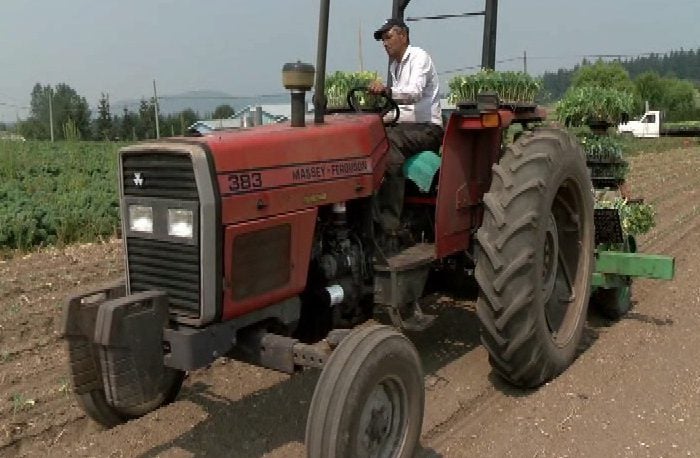

Residents, farmers, industries and municipalities are being asked to conserve water due to very dry conditions.
Dry conditions across Vancouver Island and the Gulf Islands has led the B.C. government to ask residents to conserve water.
The province says Vancouver Island and the Gulf Islands are now at a Level 3 drought rating. Under that rating, there are very dry conditions with potentially serious ecosystem or socioeconomic impacts.
Level 3 drought conditions also call for voluntary water-use reductions of 30 per cent from all surface water and groundwater users, including residents, industries, farmers and municipalities.
The Ministry of Forests, Lands, Natural Resource Operations and Rural Development is monitoring river levels and say they may upgrade the drought level if the water continues to impact stream flows and water supplies. According to the ministry, while some streams have adequate flows, especially those backed by storage reservoirs, some important salmon streams are getting close to critical environmental flow thresholds for ecosystems and fish, including juvenile steelhead, coho and chinook salmon.
One example is the Koksilah River, where low flows are threatening fish populations.
The province says if voluntary reductions of water use by 30 per cent cannot maintain flows above critical levels, the Ministry of Forests, Lands, Natural Resource Operations and Rural Development may consider regulating water usage under the Water Sustainability Act. The regulations could include the temporary suspension of water licences or short-term water approvals.
Local water conservation bylaws may be different from provincial water conservation targets, due to local water supply and demand, as well as the availability of storage in lakes and reservoirs, or groundwater.
Below are some water conservation tips from the province:
At home:
- Limit outdoor watering.
- Don’t water during the heat of the day or when it’s windy.
- Consider planting drought-tolerant vegetation.
- Take shorter showers.
- Don’t leave the tap running.
- Install water-efficient showerheads, taps and toilets.
On the farm:
- Implement an irrigation scheduling program using real-time weather data.
- Schedule irrigation to match crop needs and soil storage capacity.
- Improve water system efficiencies and check for leaks.
- Focus on high-value crops and livestock.
Industry:
- Reduce non-essential water use.
- Recycle water used in industrial operations.
- Use water-efficient methods and equipment.



